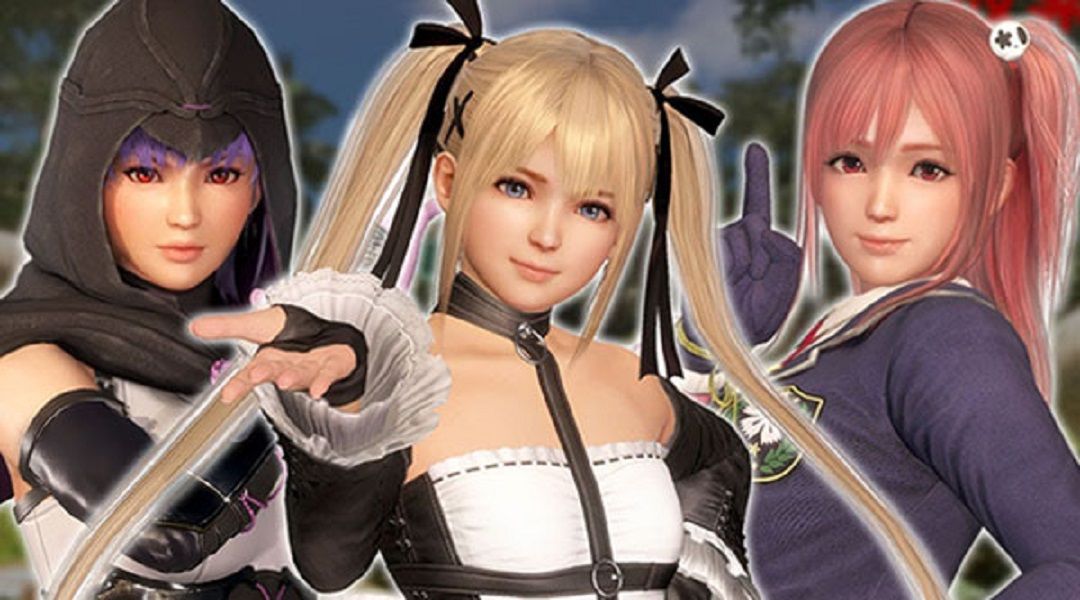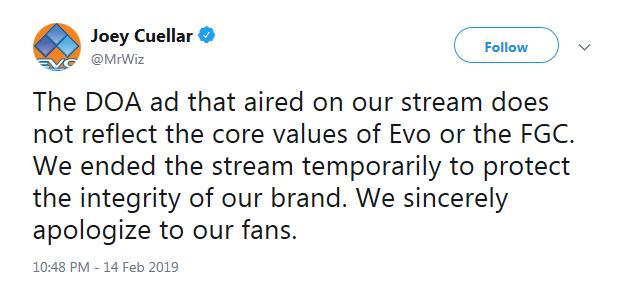Fighting game tournament EVO Japan has only just begun the weekend's events, but controversy has already stirred. During a promotional livestream for fighting game Dead or Alive, officials temporarily shut down the broadcast following some inappropriate material. The stream was restored shortly afterward and EVO boss Joey Cuellar issued an apology on Twitter. However, Cuellar has since deleted the apology for uncited reasons.
The series of events in question started with presenters showcasing the latest Dead or Alive's newly added freecam feature. The feature was used to pause the fighting game's gameplay at moments where the game's characters were in sexually explicit positions. Afterward, two gravure models, women who model in typically explicit advertising towards men, were brought on-stage wearing Dead or Alive-branded clothing and were posing suggestively for audience photos. The stream was brought down shortly after.
Following the stream being pulled, Cuellar issued an apology on Twitter stating that "The DOA ad that aired does not reflect the core values of Evo or the FGC." Cuellar has since deleted the apology, following the subsequent controversy. No reasoning for the retraction has yet been provided.
The reasoning for fans' discontent over both the EVO Japan stream being pulled and Cuellar's apology are myriad and nonspecific. The most specific of the criticism insinuates that either the content featured in the Dead or Alive stream wasn't so explicit that it deserved to be censored or that sexually explicit content is fine for such broadcasts. However, the overall controversy is more accurately compared to broader modern controversies about perceived censorship in gaming.
From EVO's point of view, Cuellar's apology was likely sincere. The Dead or Alive franchise has received growing criticism over the past 20 years and is largely absent in western media and the fighting game community as a result. "Booth Babes" like the gravure models are also a legacy promotional element, absent for several years now due to criticism regarding the sexualization and objectification of women in the industry.
Cuellar and EVO certainly understand the differences between Japanese and western cultural acceptance levels in this regard. As a result, they prioritized their broader western audience and nevermind their advertisers and publishing partners who all expected an "E for Everone" stream. Unfortunately, the more vocal minority within EVO's core audience tends to have very different expectations.
Source: ResetEra


